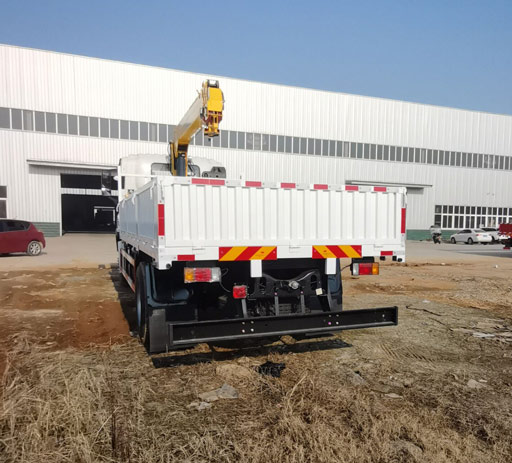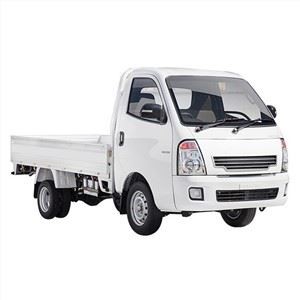Dennis Garbage Truck: The Ultimate Guide to Efficient Waste Management
Introduction
The Dennis garbage truck has become a staple in waste management across many cities and towns. Renowned for its reliability, efficiency, and innovative features, it has solidified its position as one of the most trusted brands in refuse collection vehicles. This article aims to provide a comprehensive overview of Dennis garbage trucks, exploring their design, specifications, operational efficiency, and the role they play in modern waste management systems. Whether you are a waste management professional, fleet manager, or an enthusiast, this guide will delve into practical examples and tips to maximize the utility of Dennis garbage trucks.
History of Dennis Garbage Trucks

Origins and Evolution
The Dennis brand traces its roots back to the late 19th century, beginning as a manufacturer of carts and wagons. In the 1940s, Dennis transitioned to motor vehicles and soon specialized in commercial vehicles, including garbage trucks. Over the decades, Dennis has evolved, continually innovating to meet the growing demands of waste management.
Modern Innovations
Today’s Dennis garbage trucks are equipped with advanced technology and environmentally friendly solutions. Features like efficient hydraulic systems, compact designs, and reduced emissions are standard, making them suitable for urban settings where efficiency and environmental impact are critical considerations.
Key Features of Dennis Garbage Trucks
Design and Build Quality
The build quality of Dennis garbage trucks is one of their standout features. They are constructed from high-strength materials that ensure durability and longevity, even under heavy usage. The design allows for easy maneuverability in tight urban spaces, crucial for efficient waste collection.
Capacity and Payload
Most models of Dennis garbage trucks come with various payload capacities, which typically range from 7.5 to 18 tons. This flexibility allows municipalities and waste management firms to choose models that best suit their operational needs.
Table: Capacity Comparison of Dennis Models
| Model | Payload Capacity (tons) | Engine Type |
|---|---|---|
| Dennis Eagle | 16.5 | Diesel, Euro 6 |
| Dennis 4×2 | 10 | Diesel, Euro 6 |
| Dennis 6×2 | 18 | Diesel, Euro 6 |
Technological Advancements
Many Dennis garbage trucks incorporate the latest technology, including GPS tracking and telematics systems. These enhancements facilitate efficient route planning, real-time monitoring, and vehicle diagnostics, allowing fleet managers to optimize operations further.
Operational Efficiency and Cost-Effectiveness
Fuel Efficiency
Fuel efficiency is a critical aspect of waste collection, especially for fleets operating within budget constraints. Dennis garbage trucks are designed to maximize fuel efficiency, utilizing advanced engine technologies that produce fewer emissions while maintaining high performance.
Maintenance and Durability

Another factor contributing to the cost-effectiveness of Dennis garbage trucks is their ease of maintenance. The trucks are designed for quick access to key components, reducing downtime and maintenance costs. Regular service intervals and the availability of spare parts further enhance operational efficiency.
Environmental Impact of Dennis Garbage Trucks
Eco-Friendly Features
As cities strive for sustainability, the role of the Dennis garbage truck becomes even more vital. Modern models adhere to Euro 6 emission standards, significantly lowering harmful emissions. Moreover, many Dennis trucks are available with alternative fuel options, such as compressed natural gas (CNG) and electric power, which further reduces their environmental footprint.
Contribution to Recycling Initiatives
Dennis trucks often come equipped with split-body designs that allow for separate collection of recyclables and general waste. This feature plays an essential role in enhancing recycling efforts in communities, ensuring that valuable materials are diverted from landfills.
Real-World Applications of Dennis Garbage Trucks
Municipal Waste Collection
Many municipalities utilize Dennis garbage trucks for their waste collection services. Their reliable performance and adaptability make them ideal for navigating narrow streets and executing efficient pick-up routes.
Commercial Use
Private waste management companies favor Dennis trucks due to their robust construction and operational capabilities. These trucks can handle diverse waste types, from general refuse to bulky items, making them versatile assets for business operations.
Purchasing and Leasing Options
Buying New Vehicles
When considering the purchase of a Dennis garbage truck, it’s essential to thoroughly assess your operational requirements and budget. Engaging with a qualified dealer can provide you with detailed specifications and various financing options.
Leasing and Second-Hand Options
For companies unable to invest upfront in a new fleet, leasing programs are available, which allow for flexible payment plans and lower initial costs. Additionally, purchasing pre-owned Dennis trucks can be a cost-effective alternative when aligned with proper maintenance considerations.
Training and Safety Guidelines
Operator Training
Ensuring that drivers are adequately trained is vital for safety and operational efficiency. Many manufacturers, including Dennis, offer training programs focused on safe operations, emergency procedures, and maintenance checks.
Safety Features
Modern Dennis garbage trucks are equipped with safety features such as rear-view cameras, proximity sensors, and advanced braking systems, which enhance safety for both operators and pedestrians. Regular safety audits and adherence to local regulations further ensure safe operation.
Future Trends in Garbage Truck Design
Electrification of Waste Collection Vehicles
The shift towards electric vehicles in waste collection is on the rise. Dennis is actively exploring electric models, which promise reduced operating expenses and emissions. This aligns with global trends toward sustainability and eco-friendliness.
Automation and Smart Technology
The future of garbage trucks may also include automation features. Research into fully autonomous garbage trucks is ongoing, with expectations that technology will significantly streamline waste collection operations in the coming years.
FAQs About Dennis Garbage Trucks
1. What is the average lifespan of a Dennis garbage truck?
The lifespan of a Dennis garbage truck can vary based on usage and maintenance practices, but they are generally designed to last between 10 to 15 years if properly maintained.
2. Are Dennis garbage trucks suitable for urban environments?
Yes, Dennis garbage trucks are designed with urban environments in mind, featuring compact designs that allow for easy navigation in narrow streets and busy areas.
3. How can I maintain my Dennis garbage truck?
Regular maintenance checks, timely oil changes, brake inspections, and ensuring proper tire pressure are crucial. It’s also advisable to keep the vehicle clean and free of debris to avoid wear and tear.
4. Where can I find spare parts for my Dennis garbage truck?

Spare parts for Dennis garbage trucks can typically be obtained through authorized dealers, online marketplaces, or specialty automotive suppliers who stock parts specifically for commercial vehicles.
5. Do Dennis garbage trucks have warranty coverage?
Most new Dennis garbage trucks come with a manufacturer’s warranty covering specific components for a defined period. Review the warranty details at the time of purchase for comprehensive coverage information.
6. What options are available for financing a Dennis garbage truck?
Various financing options are available, including bank loans, leasing programs, and manufacturer financing plans. Consult with a financial advisor to determine the best option for your needs.
